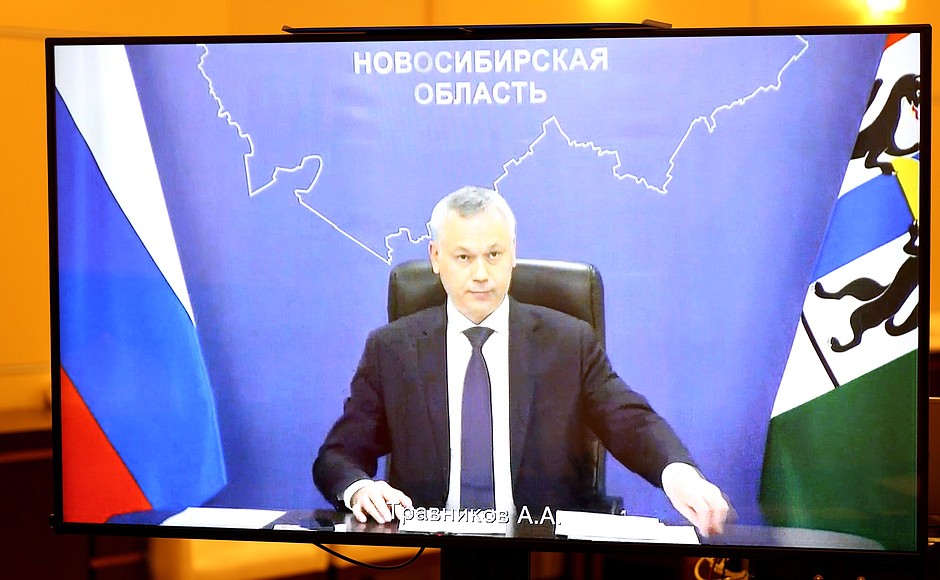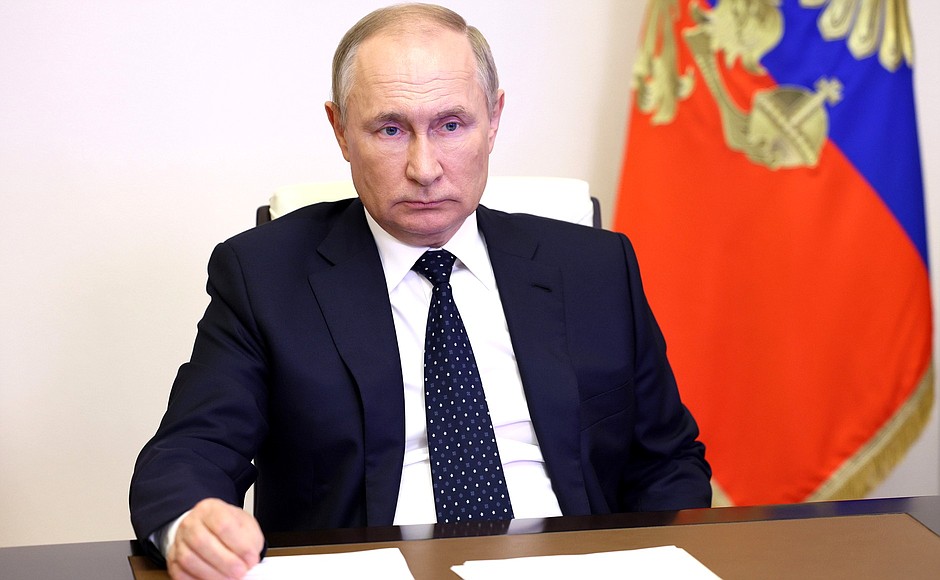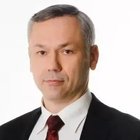At the beginning of the meeting, the President noted that the Novosibirsk Region was among the leaders by many indicators, and all of its development parameters were commendable and satisfactory.
Andrei Travnikov confirmed that the region has been maintaining a rapid pace of socioeconomic development over the past five years, with the main indicators exceeding the average Russian figures two or more times. The region’s economy in terms of GRP has grown by more than 11 percent over five years, excluding inflation in comparable prices. The record volume of investment in the economy is 330 billion rubles, which is twice as much as in 2017. Thanks to this, the consolidated budget’s revenue has also doubled over this period, including for own revenue which grew one and a half times. These indicators make it possible for the region to develop further and address new problems, such as counteracting unprecedented sanctions, taking anti-crisis measures to support enterprises and entrepreneurs, providing assistance to the Army and the National Guard Troops, and rendering aid to residents of the DPR and LPR. The sanctions have had practically no effect on the labour market; it is stable, and unemployment has even decreased.
According to the Governor, decisions were made on additional support measures for the families of mobilised citizens, such as compensation for housing and utilities services and kindergarten costs and free school meals. Assistance is being provided to its sponsored area in the Lugansk People's Republic. This does not only include the rebuilding of destroyed and dilapidated schools, but also the transition to Russian education standards, for example. Work is underway to repair and renovate residential buildings in Mariupol.
The discussion also touched upon other socioeconomic issues, in particular, a 10-percent indexation, due to price rises, of wages for public sector employees and regional social support measures, housing construction, a regional programme for the development of medicine for cancer patients, the launch of a network of haemodialysis centres throughout the region, and the upgrade of primary care. During this five-year period, 24 healthcare facilities will be built, with a total capacity of 11,500 visits per shift.
See also
Andrei Travnikov spoke about the implementation of projects, which the President had supported in 2018. The first programme is designed to develop the Novosibirsk Science Centre and includes the construction of a 4+ synchrotron radiation source. The next important programme involves the construction of campus for Novosibirsk State University. Another construction project is the second stage of Akademgorodok technopark. A project is in progress on creating a supercomputer at Akademgorodok. Apart from that, four schools and two sports centres have been built or overhauled as part of the Akademgorodok 2.0 programme. An important road is being built from Koltsovo, a science city of microbiologists, to Akademgorodok.
Another important programme involves the development of Tolmachevo Airport (Novosibirsk), which is being promoted as a major inter-regional hub in the Asian part of Russia. The ambitious task behind the project is to launch by 2025 air services from Tolmachevo to every regional capital in the Russian Federation, where there is an airport. The COVID-19 pandemic has affected these plans, but it is already possible to fly from Novosibirsk to any city in Siberia and the Russian Far East, where there is an airport capable of receiving medium-range aircraft. A powerful accompanying infrastructure is emerging around the airport. A new air terminal is being built thanks to investments contributed by a private company, NOVAPORT. This is Russia’s biggest airport project outside Moscow. There were problems with import substitution, but nevertheless the new air terminal, measuring a total of 50,000 square metres, will be commissioned. Andrei Travnikov invited the President to attend the event.
The President urged the Governor to pay attention to a number of issues, specifically the need to step up the fight against TB incidence and to improve school infrastructure. As far as Akademgorodok is concerned, the President said the federal authorities, too, should certainly help implement all the existing plans wherever possible.
The President promised to send written applications he had received to the Government for additional study and implementation. These included applications related to the development of Tolmachevo Airport, the construction of Novosibirsk’s Eastern Bypass, and reconstruction of the Irtysh motorway.


